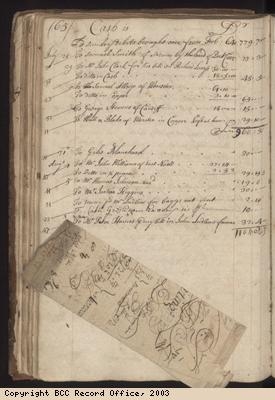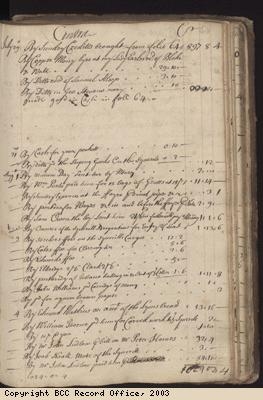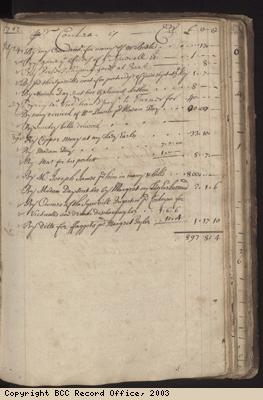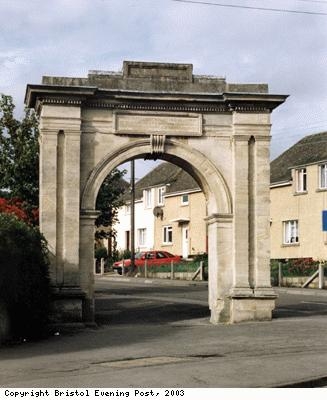Page 251 of 352 pages « First < 249 250 251 252 253 > Last »
Day family account book extract

Description:
Extract from the Day family account books 1698-1753. The Days were a leading merchant family, with several members involved in the sugar and slave trade.
Creator: Day
Date: 1698 - 1753
Copyright: Copyright BCC Record Office
Object ID:40044/1
Day family account book extract

Description:
Extract from the Day family account books 1698-1753. The Days were a leading merchant family, with several members involved in the sugar and slave trade.
Creator: Day
Date: 1698 - 1753
Copyright: Copyright BCC Record Office
Object ID:40044/1
Day family account book extract

Description:
Extract from the Day family account books 1698-1753. The Days were a leading merchant family, with several members involved in the sugar and slave trade.
Date: 1698-1753
Copyright: Copyright BCC Record Office
Object ID:40044/1
Protest at the Georgian House

Description:
Photograph of a protest made by actors from the Bristol Old Vic Theatre at the Georgian House – a period house open to the public as a museum. This photograph shows the actors being escorted from the building. They were protesting about the limited information provided in the house about the involvement of the Pinney family in the slave trade. Pinney was a sugar merchant who owned a sugar plantation in Nevis, in the Caribbean. He built and lived in the Georgian House, in Great George Street, Bristol.
Photographs reproduced by kind permission of the Evening Post.
Copyright: Copyright Bristol Evening Post
Actor at Georgian House protest

Description:
Photograph of an actor called Charles Dumas, a descendent of an Afro-Caribbean slave. The photograph shows Dumas at the Georgian House – a period house open to the public as a museum. He was part of a group of actors from the Bristol Old Vic Theatre. They were protesting about the limited information provided in the house about the involvement of the Pinney family in the slave trade. Pinney was a sugar merchant who owned a sugar plantation in Nevis, in the Caribbean. He built and lived in the Georgian House, in Great George Street, Bristol.
Photographs reproduced by kind permission of the Evening Post.
Copyright: Copyright Bristol Evening Post
Detail from Maderia Milennium Embrodiery

Description:
Detail from the Maderia Milennium Embroidery, celebrating 1000 years of British History, held at St Mary Redcliffe church, Bristol.The photograph is a close-up on the section of the embroidery which is about slavery.
Photographs reproduced by kind permission of the Evening Post.
Creator: Linda Straw
Date: unknown
Copyright: Copyright Bristol Evening Post
Artwork at slavery conference

Description:
Photograph of artwork, taken at St George Community College, Bristol, where a conference was being held on slavery.
Photographs reproduced by kind permission of the Evening Post.
Date: unknown
Copyright: Copyright Bristol Evening Post
The Freedom Arch

Description:
The Freedom Arch, recently preserved by the Stroud Preservation Trust. The arch was built to commemorate the abolition of the slave trade. The woman in front of the arch is a member of the Stroud Preservation Trust, who helped raise two thousand, four hundred pounds, to restore the arch.
Photographs reproduced by kind permission of the Evening Post.
Copyright: Copyright Bristol Evening Post
The Freedom Arch

Description:
The Freedom Arch, recently preserved by the Stroud Preservation Trust. The arch was built to commemorate the abolition of the slave trade.
Photographs reproduced by kind permission of the Evening Post.
Date: unknown
Copyright: Copyright Bristol Evening Post
St Pauls Riots

Description:
St Pauls Riots. The remains of a burnt car during the riots in St Pauls, Bristol, 1980.
The riots in St Pauls brought the area to national attention and were the first in a series of riots in large cities across the country
Contrary to popular belief, the riots in St Pauls were not strictly race riots. They were part of a long Bristol tradition of riotous action by the citys poor against perceived injustice which date back to the early 1700s at least
In 1980, both white and black youths were involved in a protest against heavy-handed policing There did seem to be a racial element as black youths felt that they were particularly singled out for unwarranted police attention.
Photographs reproduced by kind permission of the Evening Post.
Date: 1980
Copyright: Copyright Bristol Evening Post
Page 251 of 352 pages « First < 249 250 251 252 253 > Last »

